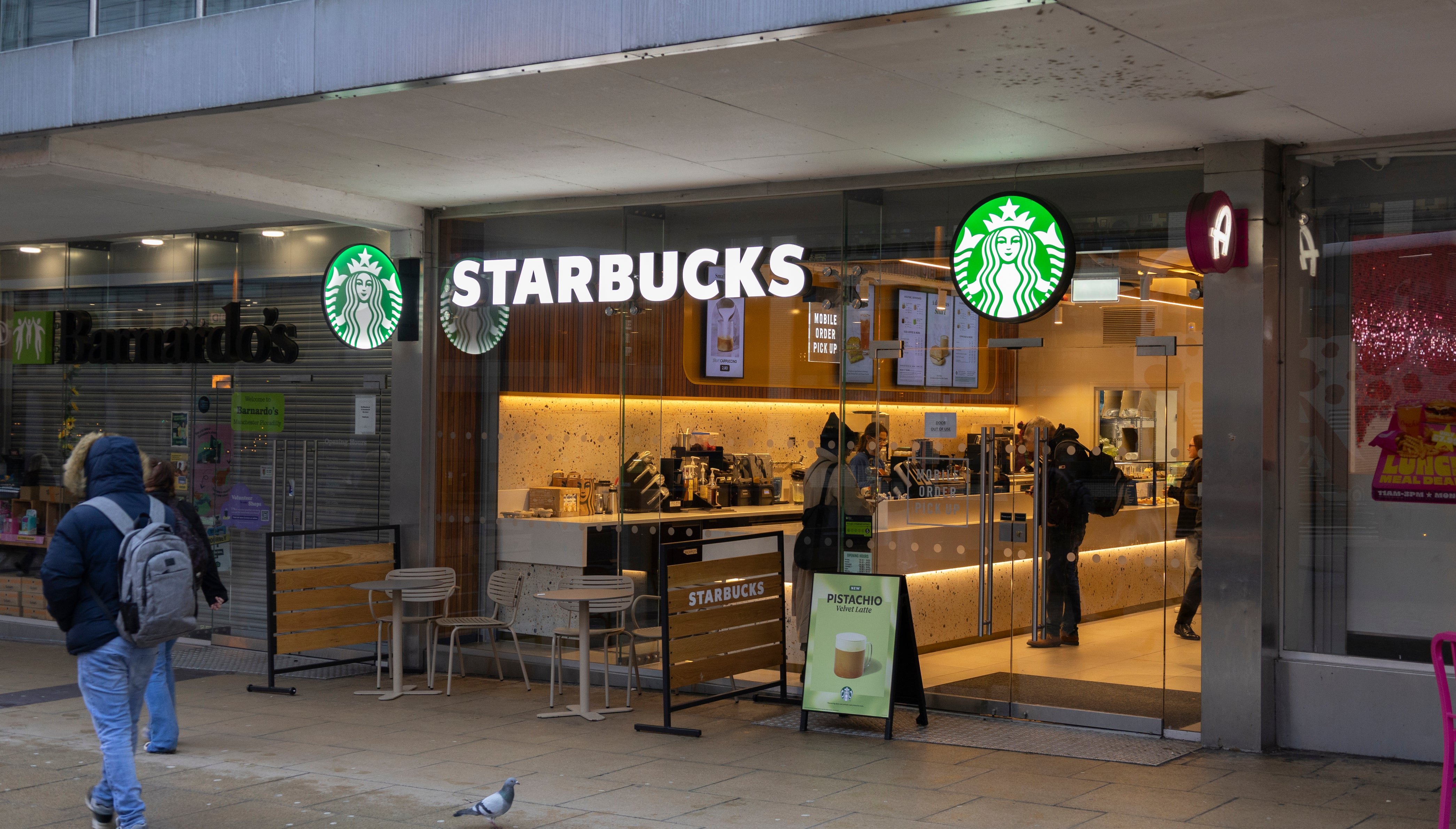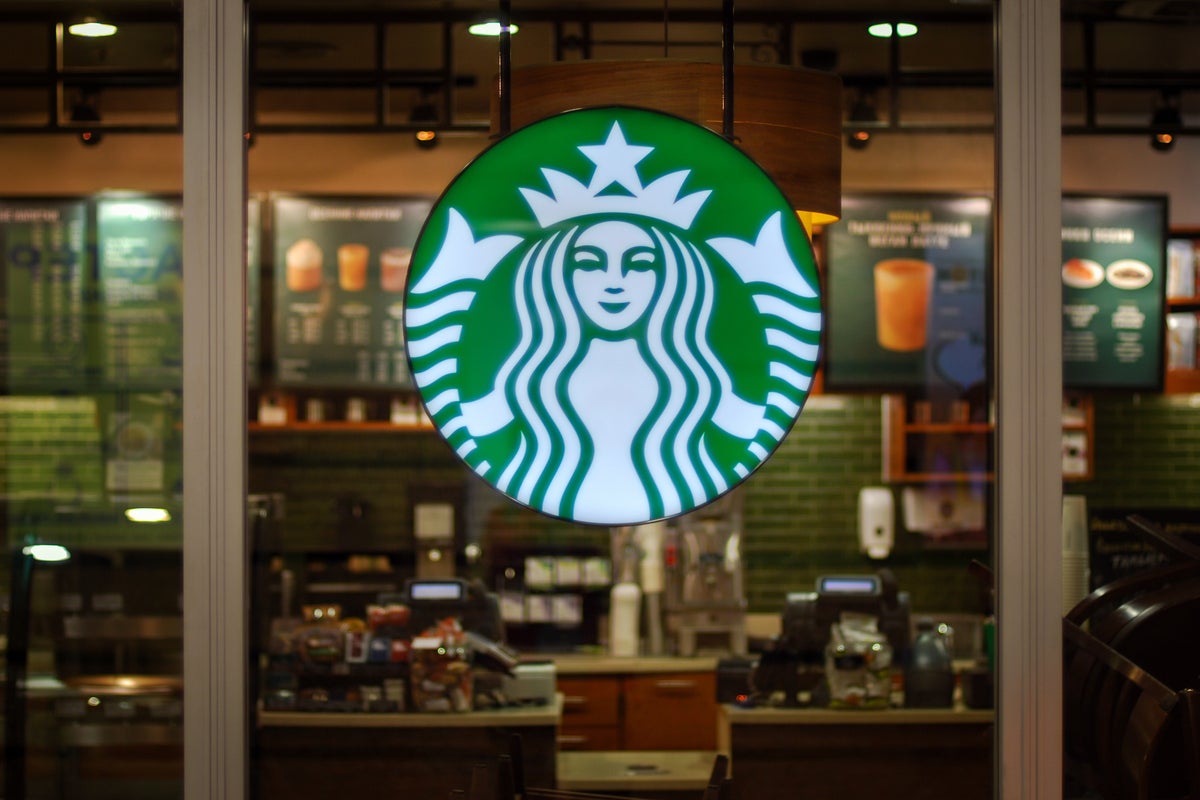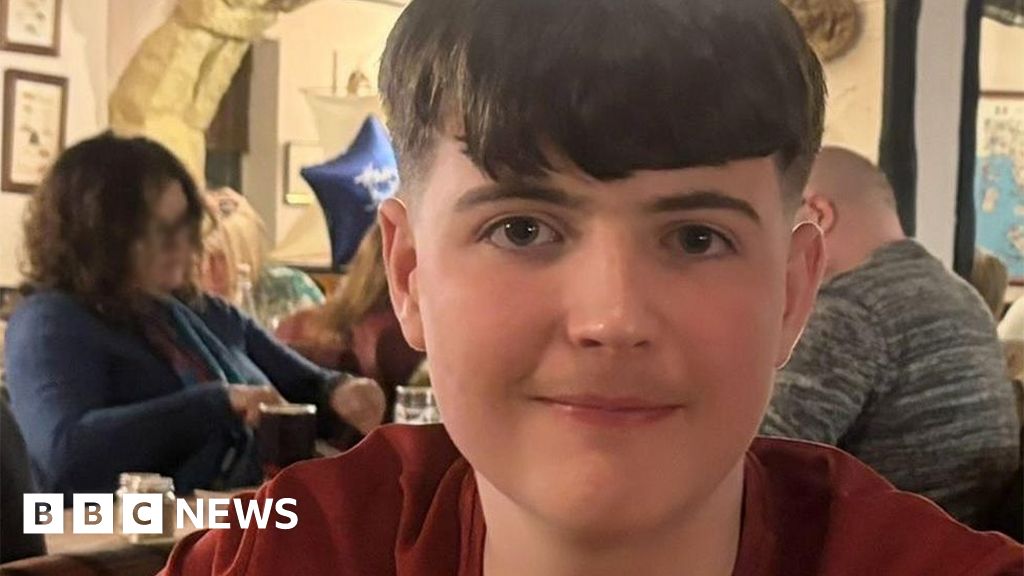A decade ago, Starbucks’s emerald siren would glow on the corner of every high street. Inside, it was a dimly lit utopia where the bean grinders churned, the steam drifted to the ceiling, and baristas would enthusiastically shout out your name. Posting a blurry Instagram picture of your cup was the ultimate status symbol (extra points if your name was actually spelt correctly). I’d know because I was an obsessive: cut me and I’d bleed caramel frappuccino. The drink was an essential accessory for days out at my local shopping centre, in an era of peak Americana in the UK – the hearts and minds of British teenage girls had been captured by the likes of Victoria’s Secret, Abercrombie & Fitch and Forever 21. Starbucks was an exciting third space, defined by secret menus, cookie-flavoured frappés and quirky American retail traits. Plus, the coffee wasn’t awful, either.
Today, though, it’s a different picture. On Thursday, the company announced that it would close an unspecified number of UK stores, as well as cut about 900 jobs in the US, as part of a cost-saving restructuring plan amid slowing sales. In a letter to employees, the company’s executive Brian Niccol – recruited last year to get Starbucks’s mojo back – said the chain would shut locations that were unable to “deliver a warm and welcoming space” or meet financial targets. In July, Starbucks reported its sixth consecutive quarterly decline in sales at stores open for at least a year. The company’s shares have fallen 8.8 per cent while an index of restaurant and bar company stocks has risen 6.5 per cent. These are not the first batch of layoffs this year, either: in February, more than 1000 jobs in the US were cut, and menus were simplified, to help flagging sales in its home market.
On the surface, this could be an all-too-familiar story of a brand grappling with soaring rent costs and the impact of the cost-of-living crisis, causing customers to cut back on spending on luxuries like £4 coffees. But this feels like more than that – Starbucks has fallen out of favour, culturally speaking, as it’s failed to match up to the trendy independent coffee shop culture that has expanded throughout the UK in recent years.
Starbucks has essentially become part of the “middle ground market”, which is vulnerable territory for public-facing companies, according to Deborah Stafford-Watson, head of strategy at Elmwood Brand Consultancy. She tells me that brands can get stuck in a paradox of being “too fancy to be basic” and “too basic to be fancy” – a positioning crisis that’s difficult to shift in the public perception. Right now, consumers are either gravitating towards two distinct poles: genuine value (just look at Gregg’s 11.3 per cent year-on-year growth and affordable breakfast deals) and “authentic speciality experiences, as we’ve seen with independent coffee shops have contributed £4.6bn to the UK economy”.
In the peak frappuccino era, Starbucks was seen as a more premium coffee offering. That all changed when competitors upped their game to rival its coffee and social currency. Vicky Bullen, CEO of branding agency Coley Porter Bell, tells me there has been a rise of coffee connoisseurship – an interest in fair-trade coffee beans, alternative milks and speciality coffeehouses. “People are seeking unique, individual experiences that the local independents can offer, opting for quality over convenience,” Bullen says. Starbucks’s interiors and relationship with consumers have made it “lose some of its third space feel”, especially since it’s available in drive-throughs at motorway service stations or available via online apps instead. Newer artisan coffee shops, like Blank Street, Black Sheep Coffee or Gail’s, have a more luxurious and personal vibe in comparison.
When it comes to ethics, too, Starbucks is failing to communicate with some of its customers. The chain has always been vocal about its fairtrade beans and ethical sourcing practices. But customers are less receptive to their messaging now because it’s coming from a “global giant”, says Jason Tassie, business growth expert and founder at Know Your Business. “Ten years ago, the brand had a real global draw, but the sense on the high street now is that UK consumers prefer something more artisan and local,” he says. “We want better value and an authentic feel, something that independent coffee shops have capitalised on – Starbucks’s uniformity is well out of step with this.” If Tassie is handing over more than £4 for a flat white (between 150-180 ml of milk and espresso), he wants that money to go to somewhere that has “personality and uniqueness”.
It can’t help, either, that the company’s alleged ties with Israel amid its war in Gaza have resulted in global boycotts, with pro-Palestine consumers refusing to buy or interact with the brand. Starbucks has denied any links to Israel, saying in a statement on its website that it’s “absolutely untrue” that the company provides financial support to Israel, or has ever sent any of its profits to the Israeli government or Israeli army.
The company has also been bizarrely embroiled in political disputes concerning freedom of speech, as customers have used names of figures such as Charlie Kirk, the right-wing political activist who was shot dead on 10 September, or US President Donald Trump, when placing an order. In one recent TikTok video, a woman at a US Starbucks branch requests Kirk’s name to be written on her cup, but is told by the barista that they can’t write political names on orders. Starbucks said in a statement earlier this month that “when a customer wants to use a different name – including the name Charlie Kirk – when ordering their drink in our café, we aim to respect their preference” but it said it had “clear policies that prohibit political slogans or negative messages to help preserve a welcoming environment”.

The spectrum of issues sometimes associated with Starbucks, then, is wide-ranging. Over the years, the company has also been under scrutiny from animal rights activists, specifically over the premium charge on non-dairy milk alternatives. In 2022, Babe actor James Cromwell, alongside animal rights group Peta, protested the coffee chain charging more for vegan milks than regular milks by supergluing his hand to a counter in a Manhattan Starbucks (the company has since abandoned the policy).
Starbucks employees are also increasingly vocal about working conditions and the terms of their employment. Earlier this month, workers’ union Starbucks Workers United – part of the Service Employees International Union – said that a survey of 737 baristas and shift supervisors had found that stores remained understaffed and baristas were overwhelmed. The union is currently fighting for a contract agreement with the company and has voiced concerns about staffing and pay, among other issues.
While plenty of noise surrounds the company, there’s also no ignoring the loyal Starbucks customer, especially in the US, who keeps the company afloat. It’s officially autumn, which means that Starbucks will be rolling out its pumpkin spice latte marketing, an annual (and often very lucrative) affair. And it’s not all bad for the brand. When announcing the layoffs on Thursday, Niccol said that other parts of his plan were “on track”, including the openings of 80 different stores in the UK, and 150 across Europe, the Middle East and Africa in the next financial year. Other new policies are designed to get Starbucks back to its heyday and lure back dissatisfied customers – baristas are now required to greet customers and make eye contact when handing over drinks. They must also write a meaningful message as well as the name on each cup. Could Starbucks one day perk up, and revert back to its old self? Perhaps, but it might need a Tripleshot Espresso to help it on its way.





